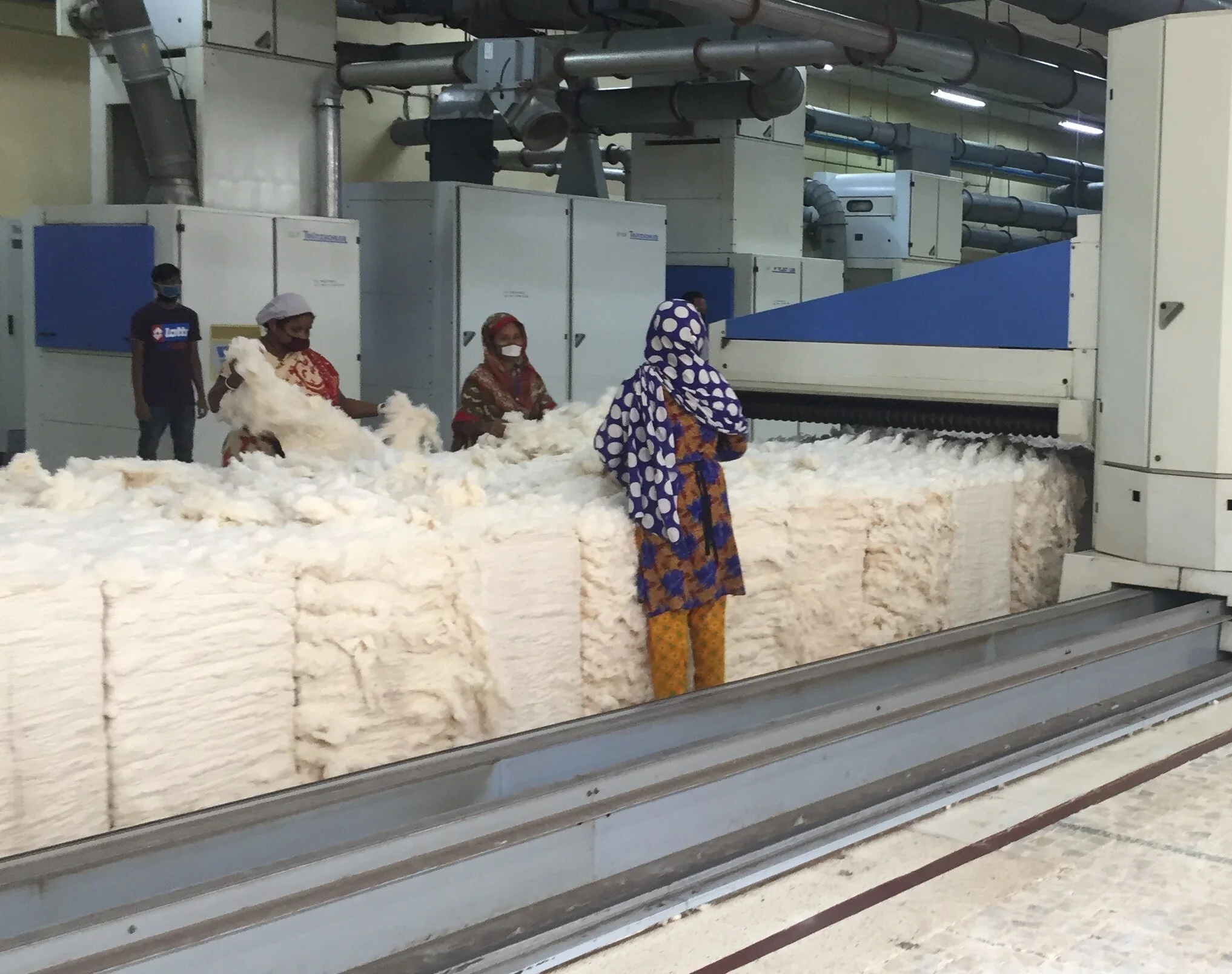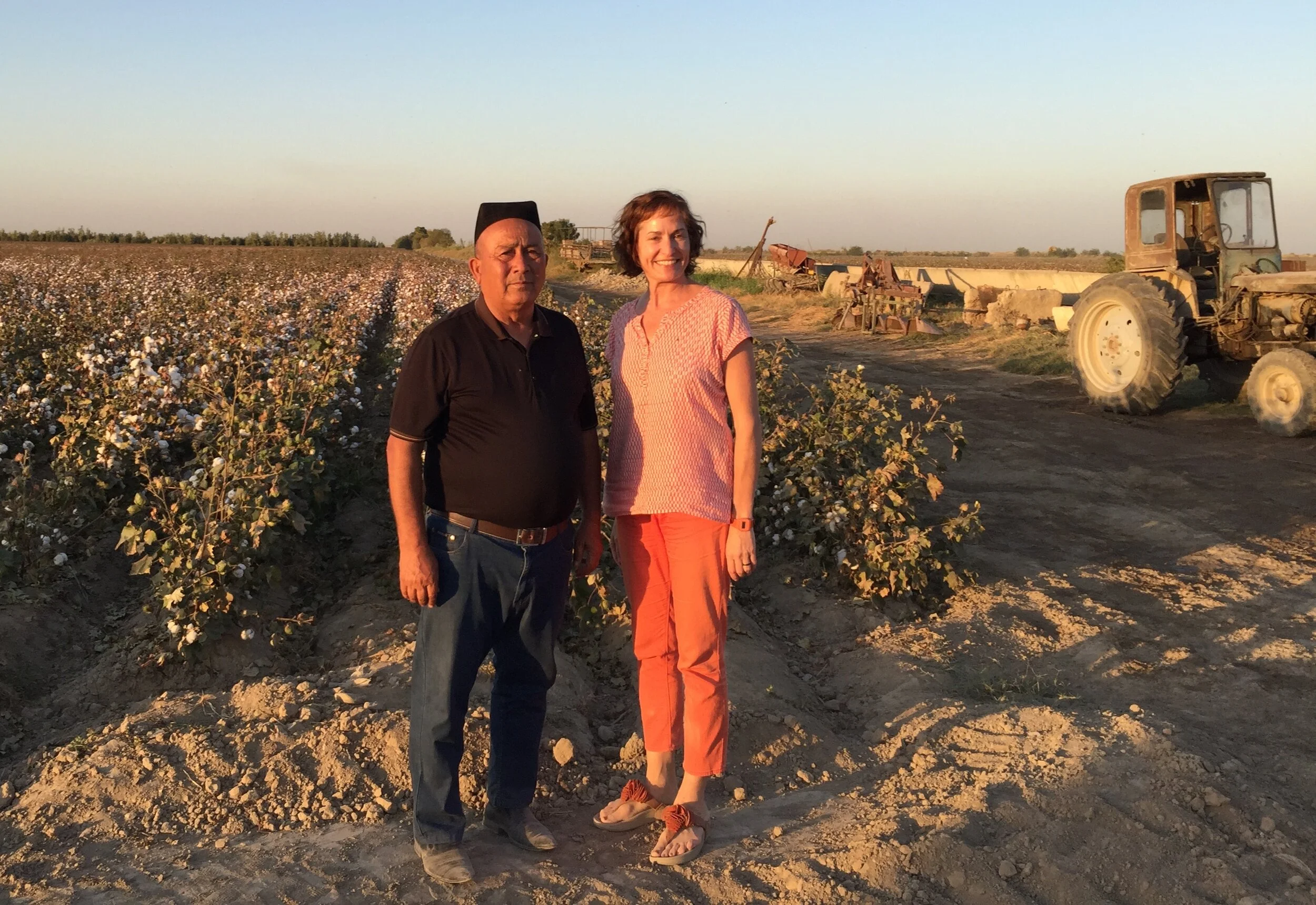Responsible Sourcing Network: December 2020 News
Wow, what a year! Like many of you, we at Responsible Sourcing Network look forward to a calm and healthy world in 2021. Although the pandemic has kept us close to home, the RSN team has been hard at work. Below is a brief summary of 2020’s steadfast progress and the exciting projects lined up for 2021. The immediate focus this coming year is to:
Help companies achieve transparent and accountable value chains for cotton textiles by piloting YESS: Yarn Ethically & Sustainably Sourced
Build a responsible sourcing approach in Uzbekistan
Research and develop next steps for the cobalt value chain in the Democratic Republic of the Congo
As we celebrate United Nations Human Rights Day, we are proud to be helping improve the lives of all human beings that are abused, exploited, or forced to toil making products that we use every day.
Thank you so much for your ongoing support. We look forward to staying connected or working with you throughout the new year.
With sincere gratitude and happy holidays,
Patricia Jurewicz,
Founder, Responsible Sourcing Network
YESS PROGRAM EXPANSION AND PILOTING
Source: Responsible Sourcing Network
Responsible Sourcing Network is excited to announce that for our initiative YESS: Yarn Ethically & Sustainably Sourced we will be releasing in the coming months a Draft YESS Standard and Assessment Workbook for Textile Mills. This new standard and workbook will complement the existing YESS Standard and Assessment Workbook for Spinners (recently renamed) and, in doing so, meet the demand from the industry to include textile mills. Our research suggests that many brands can trace their value chains to textile mills, but need assistance identifying yarn spinners. Passing a YESS assessment will allow textile mills to demonstrate their ability to manage the risk of forced labor in their cotton yarn value chains. We will be training brands and supply chain actors and then piloting both YESS Standards – for yarn spinners and textile mills - in 2021.
We are grateful for support to develop and pilot our new and existing YESS standards from Nike, Circular Systems, Fair Labor Association (FLA), and the Forced Labor Working Group comprised of associations and their members from the American Apparel and Footwear Association (AAFA), National Retail Federation (NRF), Retail Industry Leaders Association (RILA), and U.S. Fashion Industry Association (USFIA).
We welcome brands or retailers to join us in piloting YESS at spinners and textile mills, as well as contributing to develop training modules and resources. If your company would like to learn more about opportunities to get involved, support, and benefit from piloting YESS, please contact info@sourcingnetwork.org.
WHICH ARE THE HIGHEST-RISK COUNTRIES?
Given the rapidly-changing cotton industry, we have recently updated the YESS risk methodology and its references of evidence used to determine which countries have a “high risk” of forced labor in their cotton production. The methodology uses the applicable indicators in the ILO’s report, Hard to see, harder to count, and links to evidence of forced labor in the cotton sector for various countries.
Source: Fan Lingzhi/GT
With an increase of Withhold and Release Orders (WROs) from the U.S. Customs and Border Protection Agency on cotton, cotton products, or cotton product manufacturers, there has been a growing need to have transparency of cotton flowing through various tiers of the textile value chain. We have begun researching cotton trade flows to better understand where cotton from Xinjiang, China, Turkmenistan, and other high-risk countries is spun into yarn, and where that yarn is woven or knit into fabric. Following the flow of high-risk cotton from farm to fabric will allow YESS and global brands to target mills or production regions that are most likely to source cotton associated with forced labor. Cotton trade flow data for high-risk countries can be found in our Annotated Bibliography.
ILLEGAL COBALT MINING RESEARCH
Source: Fairphone, Flickr
With support from the Responsible Minerals Initiative (RMI), RSN is undertaking research focused on the extraction, transport, and sale of cobalt produced by artisanal and small-scale miners in the Democratic Republic of Congo (DRC). The goal of this research is to compile data and information to determine the highest risks of illegal mining, involvement of child labor, and the movement of artisanal cobalt from mine to point of export.
Currently artisanal cobalt, some of which is mined by children and includes various forms of labor exploitation and dangerous mining practices, finds its way into electronics and automotive value chains through auctions, or “open markets.” This research will uncover the nature of these markets so the industry can identify poor practices and engage to support responsible mining.
A PATH FORWARD IN UZBEKISTAN
Source: Responsible Sourcing Network
While we are encouraged by the significant changes that have taken place in Uzbekistan, the work to end forced labor completely remains unfinished, as the 2019 harvest demonstrated and 2020 has begun to demonstrate. After review of the 2020 harvest results, together with pledge signatories, we will evaluate the findings and make a determination about the status of the Uzbek Cotton Pledge, a commitment signed by over 300 brands and retailers.
Seeking to recognize the important progress made in Uzbekistan and responding to concerns from the global business community about the need for assurances of no forced labor, the Cotton Campaign together with RSN has developed a responsible sourcing framework that would allow Uzbek producers not using forced labor to access international markets. No system is yet in place to ensure that cotton is harvested in Uzbekistan free of forced labor since current monitoring does not operate at field level. Thus, there is an emerging need to allow a way for producers not using forced labor to provide global brands with evidence they are compliant with international laws.
Find out more in our latest blog post. Contact us at info@sourcingnetwork.org it you want to contribute to a transition in Uzbekistan to responsible cotton sourcing.
CONTINUED EXPLOITATION IN TURKMENISTAN
Source: Turkmen.news
Each cotton season, Turkmen public sector workers are forced by the government to fulfill cotton picking quotas and private businesses are forced to contribute to the efforts financially or by providing laborers. Every year, the harvest leaves schools, businesses, and health institutions understaffed or closed, placing a huge burden on the health, education, and general well-being of Turkmen citizens.
We are excited to announce that the Turkmen Cotton Pledge has just surpassed over 100 signatories, reinforcing the importance of ending this exploitation. Given the extra burden placed on workers during this harvest due to COVID-19, our work in Turkmenistan is especially necessary.
OUR COMMITMENT
Thank you for your part to end modern slavery and your support as we continue to shine a light on the vulnerable communities tied to products we all use every day. Throughout 2021 we will be implementing solutions for the invisible and enslaved workers of the world whose exploited labor is unknowingly embedded in our favorite goods.
For more information or to find out how you can get involved with any of our projects, please contact us at info@sourcingnetwork.org







